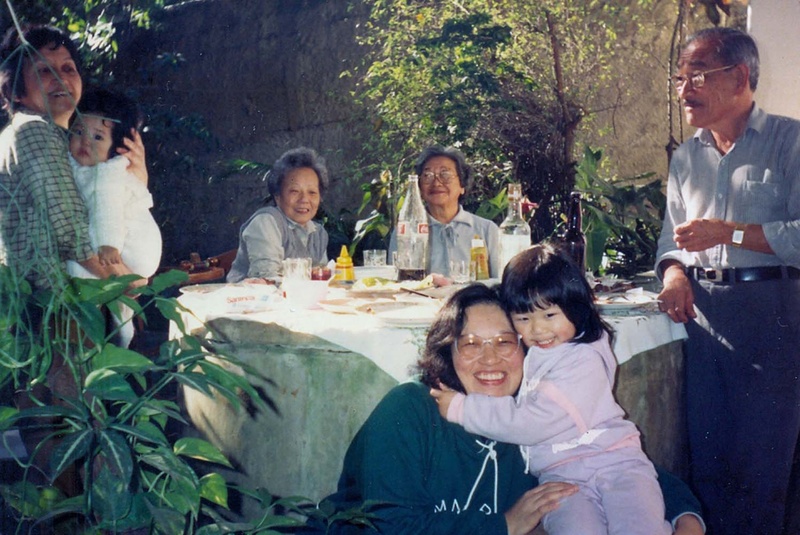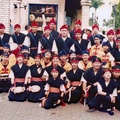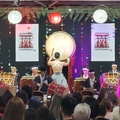I stopped to think and compare the generations of my grandparents, my parents and mine and my sisters. In addition to the age difference, there are also cultural differences and adaptation to Japanese traditions. And all of this makes each generation very different from each other.
Life and coexistence
To begin with, my grandparents settled and made their lives in the country, where my parents grew up. But both my father and mother came to São Paulo to go to college and they still live here today.
I, my sisters and cousins, with the exception of one who is in the interior, live in São Paulo. In reality, as I'm used to life in the metropolis, I don't imagine myself living in the countryside.
Furthermore, I realized that my grandparents have more contact with the Nikkei community, while my sisters and I hardly live with descendants. Some cousins of the family on my mother's side, when they lived in the west of São Paulo, took part in the city's Bunkyo volunteer activities. Meanwhile, I worked for a year and a half at Bunkyo in São Paulo.
Different cultural customs
Something that my friends talk about from time to time when they remember life in the countryside is that they attended specific community events in the city where they lived. My father has memories of the boats at Tooro Nagashi, in Registro, and my mother remembers participating in Shokonsai, in Álvares Machado, a religious cult for the souls of ancestors. In São Paulo we do not acquire this custom.
A cultural point that I also observed is that my grandparents always had more affinity with the Japanese language. Even because my great-grandparents were immigrants.
My parents studied the Japanese language at school and spoke it a little with my grandparents on a daily basis. From time to time, my father and mother used Japanese words mixed with Portuguese to speak to my two sisters and me.
I learned some words, expressions and numbers from my paternal grandmother when I was a child and as an adult I took two years of language classes. My younger sister took a few years of course too and knows a little more than me. But my middle sister had no interest in studying Japanese.
Another thing I noticed is that my grandmothers always prepared typical Japanese foods – mochi rice with adzuki , manju , sushi ... At home, my mother cooked more hot dishes, like miso soup and gobo (burdock). But most of the time they were Brazilian dishes. And my father always remembers that my grandmother made a seasoned gohan that she called abura gohan .
Today, my younger sister is more interested in Japanese cuisine and she cooks most Asian-style. But both she, my other sister and I learned how to prepare some food on our own, because before, Japanese food was only available in restaurants.
Despite this, nowadays, some items – such as sushi , tofu (“soy cheese”), natto (fermented soybeans), mushrooms ( shimeji and shitake ), among others – are more accessible and can be found in community-oriented markets. Japanese-Brazilian culture and also to lovers of Japanese culture. There are even pre-cut vegetables for preparing yakisoba .
A well-known custom among people of Japanese descent is miai , the arranged marriage between Nikkei, a tradition that my grandparents ended up following. During my childhood, I often heard adults mention this term in conversations.
When it came to my parents – and uncles too, the preference was for people of Japanese descent. This preference seems to have ceased to exist in relation to my generation. Sometimes, my mother or father would make jokes involving my sisters and me, saying that we would marry a “Japanese”. What I think is most important to them is that our comrades are good people, regardless of whether they are Nikkei or not.
I discovered that in Brazil there are even companies that promote speed dating style events aimed at single descendants.
End of the year
I learned the importance and habit of cleaning at the end of the year ( oosouji or “the big cleaning”, in Portuguese) from my parents. The Japanese believe it is good to circulate energy and let new ones in with the arrival of the new year.
Also when we were children, my sisters and I received money in a white envelope as a New Year's gift ( otoshidama ) from our grandmothers. My paternal grandmother even wrote each person's Japanese name in hiragana . After a few years, it became customary for our grandmothers to give us gifts for our birthdays or Christmas in the same way, something that my aunt – my father's sister – did for a while.
Traditions and what changes
These traditions that I mentioned seem a little outdated nowadays. I myself could not imagine putting these customs into practice. This has to do not only with the proximity of our roots, but also with the new values and habits that we have adopted.
It is natural for this change to happen. And not just among Nikkei – among descendants of other nationalities too. Now I can't say whether this is good or bad, we will only know with time.
© 2017 Tatiana Maebuchi






